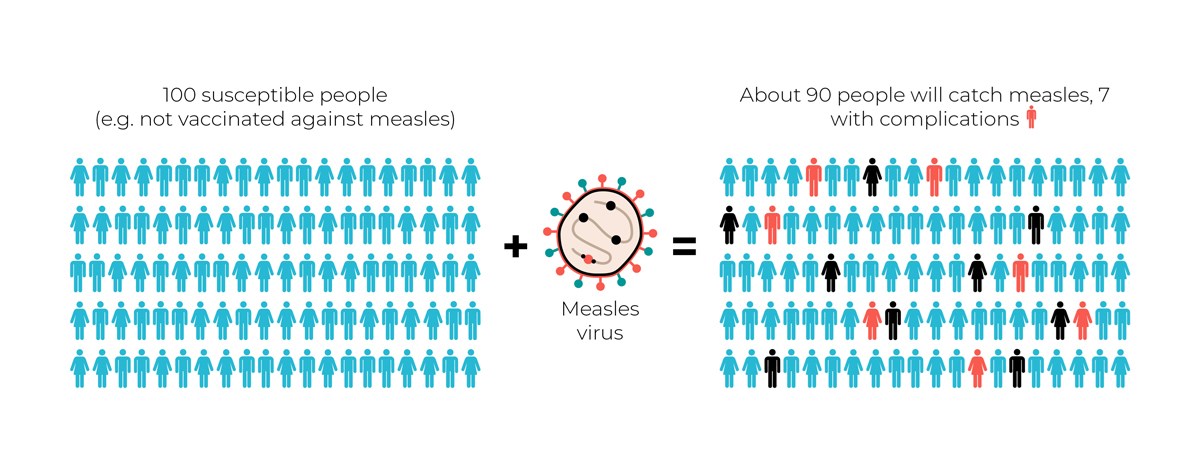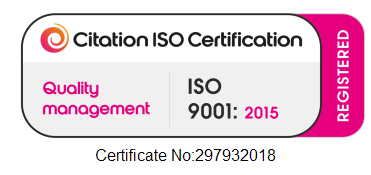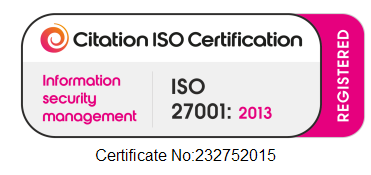

24 Oct 2019
Should vaccinations be mandatory? Dr. Dan Bunstone delves deeper into immunisations
In recent news, we have seen a call for immunisations to become compulsory. As part of our series of articles by our dedicated Clinical Advisory Board (CAB) members, Dr. Dan Bunstone has written a compelling piece on vaccinations, why we need them and why we shouldn’t be afraid to immunise our children.
Vaccines are the most effective way to prevent catching infectious diseases. They are especially important for newborns and very young children while their immune systems are developing and learning how to fight off infections effectively. Children are of course able to fight off infections, but some infections are so serious - and in some cases, potentially deadly - that we need to give them all the help we can to stop the spread of these diseases.
Within the first four months of life, the NHS currently recommends immunisation against nine different infections, these are: diphtheria, hepatitis B, Hib (human influenza type B), polio, tetanus, whooping cough, Pneumococcus, Meningitis B and Rotavirus. All of these infections are highly contagious and very serious, which is why we need vital protection from them.
Vaccinations aren’t just about protecting ourselves and our children, but also about helping protect society as a whole. Over the last few years, there has been a lot of controversy over the MMR vaccinations. As a result, immunisations have dropped and the World Health Organisation has reported that globally measles cases are rising year on year, with 2019 seeing a threefold increase in reported cases of the infection. In the UK, there were almost an additional 300 confirmed cases reported, with outbreaks and transmission tending to occur in unvaccinated or partially vaccinated (incomplete vaccination course) individuals.
The UK Prime Minister, Boris Johnson, has most recently been commenting on the tragedy of the number of measles cases confirmed within 2019, as well as the fact that the UK is now no longer a measles-free country.
Measles is highly contagious and very easily spread through water droplets that are coughed or sneezed by individuals. For example, if 100 unvaccinated individuals were exposed to measles, 90 of them will suffer the illness, with seven of these suffering complications.*

It’s important to be aware that measles are not just a “spotty infection”. This disease comes with serious complications, including pneumonia, diarrhoea and encephalitis (brain swelling).There is around 1 death in every 5000 cases of measles in Western Europe, but this figure rises to around 1 in every 100 in the poorest regions of the world, with the world toll being around 90,000 per year.
Famous author Roald Dahl’s daughter, Olivia, died of measles-related encephalitis in 1962, six years before the vaccine became available in 1968. He became an advocate of vaccination until his death in 1990.
Read on to learn more about Roald Dahl’s experience with measles.
Measles: a dangerous illness by Roald Dahl (written in 1986)
'Olivia, my eldest daughter, caught measles when she was seven years old.
As the illness took its usual course I can remember reading to her often in bed and not feeling particularly alarmed about it. Then one morning, when she was well on the road to recovery, I was sitting on her bed showing her how to fashion little animals out of coloured pipe-cleaners, and when it came to her turn to make one herself, I noticed that her fingers and her mind were not working together and she couldn’t do anything.
“Are you feeling all right?” I asked her.
“I feel all sleepy, ” she said.
In an hour, she was unconscious. In twelve hours she was dead.
The measles had turned into a terrible thing called measles encephalitis and there was nothing the doctors could do to save her.
That was twenty-four years ago in 1962, but even now, if a child with measles happens to develop the same deadly reaction from measles as Olivia did, there would still be nothing the doctors could do to help her.
On the other hand, there is today something that parents can do to make sure that this sort of tragedy does not happen to a child of theirs. They can insist that their child is immunised against measles. I was unable to do that for Olivia in 1962 because in those days a reliable measles vaccine had not been discovered. Today a good and safe vaccine is available to every family and all you have to do is to ask your doctor to administer it.
It is not yet generally accepted that measles can be a dangerous illness.
Believe me, it is. In my opinion parents who now refuse to have their children immunised are putting the lives of those children at risk.
In America, where measles immunisation is compulsory, measles like smallpox, has been virtually wiped out.
Here in Britain, because so many parents refuse, either out of obstinacy or ignorance or fear, to allow their children to be immunised, we still have a hundred thousand cases of measles every year. [NOTE: Since this was written in 1986, the success of the MMR vaccination has reduced this figure to several thousand each year, but unvaccinated children are still at risk, and there are still occasional deaths from measles].
Out of those, more than 10,000 will suffer side effects of one kind or another.
At least 10,000 will develop ear or chest infections.
About 20 will die. [NOTE: The number of deaths from measles has fallen to almost zero in the UK since this was written. The number of people affected by complications of measles has also fallen.]
LET THAT SINK IN.
Every year around 20 children will die in Britain from measles.
So what about the risks that your children will run from being immunised?
They are almost non-existent. Listen to this. In a district of around 300,000 people, there will be only one child every 250 years who will develop serious side effects from measles immunisation! That is about a million to one chance. I should think there would be more chance of your child choking to death on a chocolate bar than of becoming seriously ill from a measles immunisation.
So what on earth are you worrying about?
It really is almost a crime to allow your child to go unimmunised.
The ideal time to have it done is at 13 months, but it is never too late. All school children who have not yet had a measles immunisation should beg their parents to arrange for them to have one as soon as possible.
Incidentally, I dedicated two of my books to Olivia, the first was James and the Giant Peach’. That was when she was still alive. The second was ‘The BFG’, dedicated to her memory after she had died from measles. You will see her name at the beginning of each of these books. And I know how happy she would be if only she could know that her death had helped to save a good deal of illness and death among other children.'
There are similar stories true for all of the diseases we vaccinate against. Vaccines are safe - they protect us, they protect our children and they protect society. Vaccinations prevent the misery, suffering and tragedy these diseases bring with them, which is why it’s vital all families ensure their vaccinations are up-to-date - you won’t regret having them done.
To read more interesting articles by our Clinical Advisory Board, please follow us on Twitter - @experts_speed.






